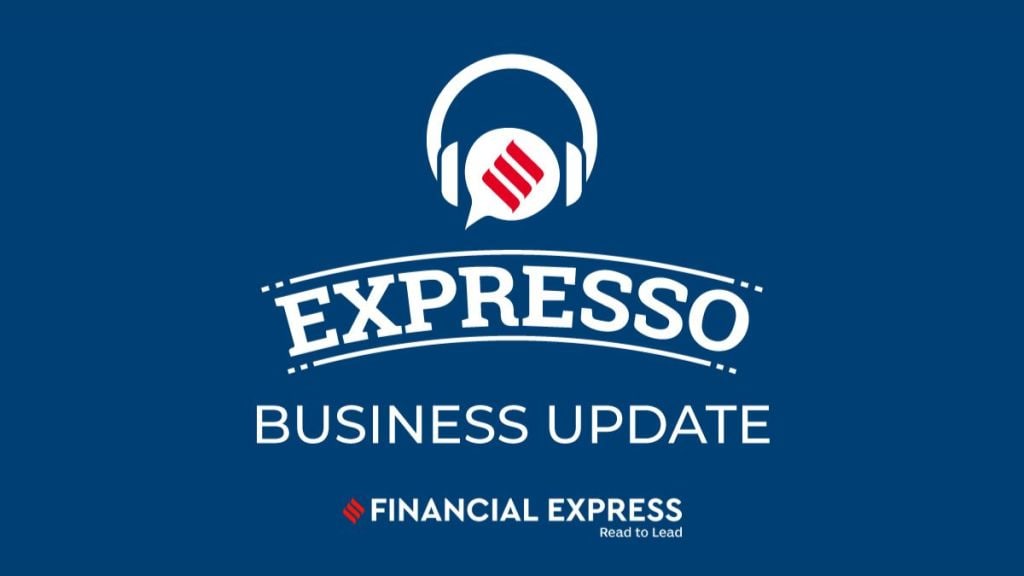In this weekly roundup, we bring to you all the updates from the RBI’s Monetary Policy Committee that were presented by Governor ShaktiKanta Das on February 8 and key updates.
Weekly Business Roundup at 10:00 am on 10th February 2024.
In this weekly roundup, we bring to you all the updates from the RBI’s Monetary Policy Committee that were presented by Governor ShaktiKanta Das on February 8 and key updates.
Weekly Business Roundup at 10:00 am on 10th February 2024.
[Disclaimer: This transcript is auto-generated]
===
Let’s begin with the Reserve Bank of India’s Monetary Policy Committee which made headlines this week. During the presentation, RBI kept repo rates unchanged at 6.5 percent. It has also decided to remain focused on the withdrawal of the accommodative stance, Governor Shaktikanta Das said. This is the sixth consecutive unchanged decision and comes after the Interim Budget was announced on February 1, 2024. MPC also decided by a majority to remain focused on the withdrawal of accommodation to ensure the inflation progressively aligns with the target while supporting growth. RBI has maintained its inflation projection at 5.4% for 2023–2024. CPI inflation is predicted to be 4.5% for the upcoming fiscal year 2024–2025.
Meanwhile, RBI stoutly defended its January 31 action on Paytm Payments Bank by saying that the bank had compliance issues across various parameters, and not just KYC. RBI Governor Shaktikanta Das, at the post-monetary policy committee conference, said, “The regulations are there in place and are robust. It is not a case where there were regulatory deficiencies or regulatory corrections required. It is an issue of non-compliance with various parameters, not just KYC,” he said. RBI deputy governor Swaminathan J said RBI actions take place after ‘months and at times, years of bilateral engagement with the regulated entity where we not only point out the deficiencies but also provide enough time for them to take corrective actions’.
Next up is the key update from Adani Group, which plans to demerge its airports division within the next 3 to 5 years, aiming to become India’s largest airport operator. With seven operational airports, Adani Airport Holdings, controlled by the group’s flagship company Adani Enterprises, is the second largest airport operator in India. The company is looking to grow its passenger handling capacity three-fold to 240-250 million over the coming years. It has further hinted at continued participation in the government’s airport privatisation drive. Jugeshinder ‘Robbie’ Singh, group chief financial officer, Adani Group said, “We will wait for the demerger of this business till it achieves the benchmarks we have set.”
In other major news, the Indian Railways is set to introduce the inaugural fleet of the 10 Vande Bharat sleeper class trains. According to media reports, the inaugural fleet of 10 Vande Bharat sleeper class trains is set to debut in March. The initial routes earmarked for these trains include the high-traffic corridors of Delhi-Mumbai and Delhi-Howrah, with trial runs anticipated to kick off in April. These Vande Bharat sleeper train sets, currently in the development phase, boast high-speed capabilities and are tailored for long-distance journeys. As electric multiple units, they promise enhanced efficiency and reduced travel times, aiming to surpass the speeds achieved by Rajdhani trains.
The Union Minister of Road Transport and Highways, Nitin Gadkari shared key information in a written reply in Lok Sabha and said India has the second largest road network in the world, with about 63.32 lakh km of roads as of March 2019. This is a remarkable increase from about 54.02 lakh km in March 2014. He added, that the Ministry of Road Transport and Highways has received a significant boost in its budgetary allocation, from about Rs. 31,130 crore in 2013-14 to Rs. 2,76,351 crore in 2023-24. The capital expenditure on National Highways (NHs) has also increased manifold, from about Rs. 51,000 crore in 2013-14 to more than Rs. 2,40,000 crore in 2022-23.
As we roll into February, Maruti Suzuki is offering a host of discounts on its hatchback range, amounting to over Rs 60,000. These discounts on the Maruti Suzuki models include cash discounts, exchange bonuses, and corporate benefits. These discounts are available with dealers until stock lasts and may vary depending on the dealer. The Alto name has been around for a long time and the latest version of the Alto K10 gets benefits worth Rs 62,000, applicable to all petrol variants. The Maruti Suzuki S-Presso AMT versions and Maruti Suzuki Celerio have benefits totaling Rs 61,000 in February 2024. However, unlike the S-Presso, the Rs 61,000 benefit is applicable across all petrol variants of Celerio.
Lastly, the Tata Group has emerged as India’s first conglomerate to breach the Rs 30 trillion mark in market capitalization. The milestone was reached on Tuesday, driven by a 4% surge in Tata Consultancy Services shares, propelling its market valuation beyond Rs 15 trillion for the first time. The substantial rally in TCS shares contributed to the overall market cap of the Mumbai-based conglomerate, reaching a total of Rs 30.6 trillion. In comparison, Mukesh Ambani-led Reliance Group holds the position of India’s second-largest business entity with an m-cap of Rs 21.6 trillion, followed by Gautam Adani-led Adani Group at Rs 15.5 trillion. Tata Consultancy Services Ltd has witnessed a noteworthy 9% surge in 2024, while Tata Motors Ltd recorded an impressive 20% advancement.
